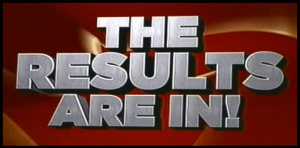Your Choice Continues
Well, not quite there is still time. When the final results of the election are announced will you react or will you respond?
I can almost wager that every vote you cast, whether for a candidate or proposal will not result in the outcome you favored. I am an absentee voter and have already mailed in my ballot. Come Wednesday morning (or whenever the official numbers come in) we will find some results, upon which we do not agree.
We will then have an opportunity to react or respond. A reaction is something that is pretty much automatic like when a physician uses a small rubber hammer to gently strike your knee. She can get an idea about other things or the “big picture” based on your automatic reaction to the striking of your knee. If you have every been in a supermarket when a typical two year old gets to the candy displayed at the checkout aisle, and said child wants candy however, their parents don’t comply with their wishes, you have probably experienced a reaction. I venture to say you have been exposed to this type of reaction as a spectator and possibly a participant.
The child in this type of situation is seeking its own immediate gratification. Focused on the narrow experience of seeing something and wanting it, regardless of the long-term affects. This reaction does not require much thought and is shortsighted. Over time this child can learn to alter their reaction to become a response.
A response involves understanding of the big picture. A response looks at long-term affects and outcomes. A reaction to a pan of grease catching on fire on a stovetop might be to put water on the fire. While water is a successful method to put out some fires, pouring water on the grease fire on the stove does not reflect action that engages knowledge or understanding of the whole picture. The productive outcome of extinguishing the fire may not be reached; on the contrary it may cause that goal to be prevented.
A suitable response to the toddler in the market or the grease fire can be developed by thinking and understanding before taking action. When emotions are not high and time is more available both of these situations can be responded to in a way that facilitates long-term productive outcomes. Parents may offer their toddler fruit on the way to the market, communicate with them that in the store their will be no candy because they have already enjoyed the fruit. Taking practice runs to the market where the child is shown how this will work and giving them positive reinforcement for appropriate behavior can work together as a strategy to redirect the reaction into a response.
Cooks in the kitchen may learn and practice the options available in practically any kitchen to put out a grease fire, with the least amount of harm, by gathering safety information. They can examine scenarios that have been successful in such incidents in the past and be ready to apply them in the future if the need arises. When there is a plan the outcomes are more likely to be successful even when the atmosphere is charged with emotion. Thought rather than panic or fear is key to responding rather than reacting.
When the results are in, will you react with name-calling and attacks on those whose views differ from yours. Will you point fingers and draw lines in the sand? Will you think about how we can move to a place of understanding looking at the big picture? Will you spend time looking at teamwork mutual goals? Will you get caught up in the wave of instant gratification, showing everyone around you that you want what you want and you want it now, like the child? Will you take an emotionally intelligent stance and acquire knowledge, and take actions, which will help you to work with your environment to promote success in the long run?
Do you generally react or respond? Are you known as the “hot head” or the one with the quick temper? Have you been told that you need anger management? Have you recognized that you need anger management? Are those around you fearful of how you will react when things don’t go your way? Do you frequently scare yourself by some of the hurtful comments you make? Do you find yourself usually being very impatient with others? Have you damaged property in a fit of anger? Have you stuffed down your feelings for so long that you find yourself making derogatory comments and doing hurtful things to others to secretly sabotage their efforts without explaining to them what you think they have done wrong? Do you routinely make negative comments about others, under your breath (in a voice that they can hear but they are not able to understand) and when asked what did you say, you say “nothing”? If you answered yes to any of these questions you may be reacting inappropriately to anger.
Anger is not a negative emotion. It is part of our humanness how we are wired. Everyone experiences feelings of anger, disappointed or frustrated, it is what we do with those feelings that can get us into trouble. (Ephesians 4:26) There are appropriate ways to express your anger. Think about it, do you usually react or respond?
Take Inventory, and Take Action. If you are not sure, or you are thinking perhaps you have developed a pattern of reacting in an unproductive way, then help is available! Contact me with your questions I have solutions! Send me a personal email at Deborah@mapsandlanterns.org or call me at 323-521-4544 for a free consultation. You owe it to yourself and those around you to be the best you can be!
The results are almost in will you react or respond? The choice is yours!
Love,
Deborah
“Lighting the path to loving your neighbor as yourself!”

